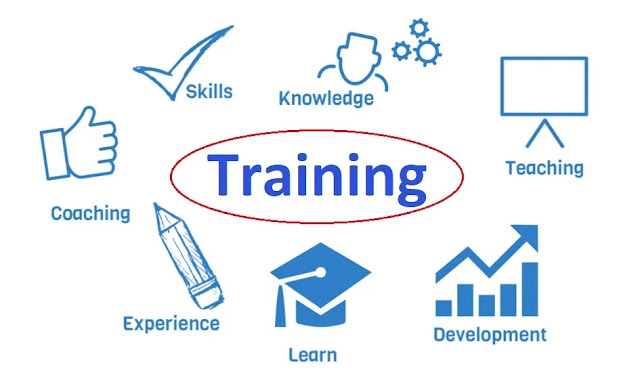Importance and Impact of Proper Training
After working with different organizations & on different
projects with seniors & juniors I observed many things and training is one
of them.
For example, I remember a plumbing supervisor on one project who
installed 6 watercoolers with 6 water filters in a serial instead of parallel to
each. A civil engineer who wasted too much concrete in his learning process and
one who doesn’t know how to calculate the quantity of ordered concrete and one who misses the important things required to work on the night shift. An
electrical supervisor was unaware of the type of common power generators
used in the construction site whether AC (Alternate Current) or DC (Direct Current). Some workers smoke near
the flammable material in the basement.
The Essential Job Search Package 2023 | CV, Resume and Cover Letter
What is A Proper Training?
Proper training can be defined as a process of imparting the
necessary skills, knowledge, and experience to employees, in order to enable
them to perform their job effectively and efficiently. A proper training
program may include the following elements:
Goals and objectives should be clearly defined, and the training
program should be designed to meet specific needs and should be aligned with
the overall goals and objectives of the organization.
The training should be relevant to the job or task that the
employee will be performing.
The training should include a hands-on component, such as
on-the-job training or the use of simulations, to give employees the
opportunity to apply what they have learned in a practical setting.
There should be active engagement from the workers and training
should be interactive and participatory, with opportunities for employees to
ask questions, provide feedback, and practice what they have learned.
The training program should include assessments to evaluate the
effectiveness of the training and to identify areas where employees may need
additional support.
The training should not end after the program, follow-up, and
reinforcement of the training material is important to ensure the employees are
retaining the information and can apply it to their daily tasks.
The effectiveness of the training program should be evaluated
regularly to ensure that it is achieving its intended goals and to make any
necessary adjustments.
A proper training program should be tailored to the specific
needs of the organization and the employees and should be designed to provide
them with the skills and knowledge they need to perform their jobs effectively
& safely.
Importance of Proper Training
Proper training is important for a number of reasons:
By providing employees with the necessary skills and knowledge
to perform their job, they will be able to work more efficiently and
effectively, which can lead to increased productivity and improved job
performance
Training can help employees feel more satisfied with their jobs,
as they feel more confident in their abilities and have a better understanding
of their role within the company.
Proper training can greatly help to reduce the risk of accidents
and injuries in the workplace, which can lead to a safer work environment for
employees and a lower risk of liability for the company that’s why the safety
department always says “Safety First”.
Proper training can help employees to think creatively, look for
new ways to improve processes, increase efficiency and drive the company's
success.
Proper training helps employees to be more productive,
motivated, engaged, and satisfied in their roles, which benefits both the
employee and the company.
Impacts of Untrained Staff
Untrained staff can have a number of negative impacts on an
organization:
Without proper training, employees may not have the skills and
knowledge needed to perform their job effectively, which can lead to a decrease
in productivity and an increase in errors which have a cost & time impact.
Untrained employees may require more supervision and guidance,
which can lead to increased labor costs for the company. Additionally, the
company may incur costs from mistakes made by untrained employees that need to
be corrected as I mentioned in the example above the wrong concrete removal
cost both in material & labor.
Untrained employees may not be able to provide customers with
the level of service they expect, which can lead to decreased customer
satisfaction and a negative impact on the company's reputation.
Without proper training, employees may not be aware of the
potential hazards in their work environment, which can increase the risk of
accidents and injuries and safety is the main concern of all most on all the projects.
Untrained staff may not have the necessary knowledge or skills
to come up with new ideas or ways to improve processes, which can limit the
organization's ability to innovate and stay competitive in the market.
Untrained staff can have significant negative impacts on an organization's performance, productivity, and bottom line. It's important for organizations to invest in training and development to ensure that their employees have the skills and knowledge needed to perform their jobs effectively.
















0 Comments